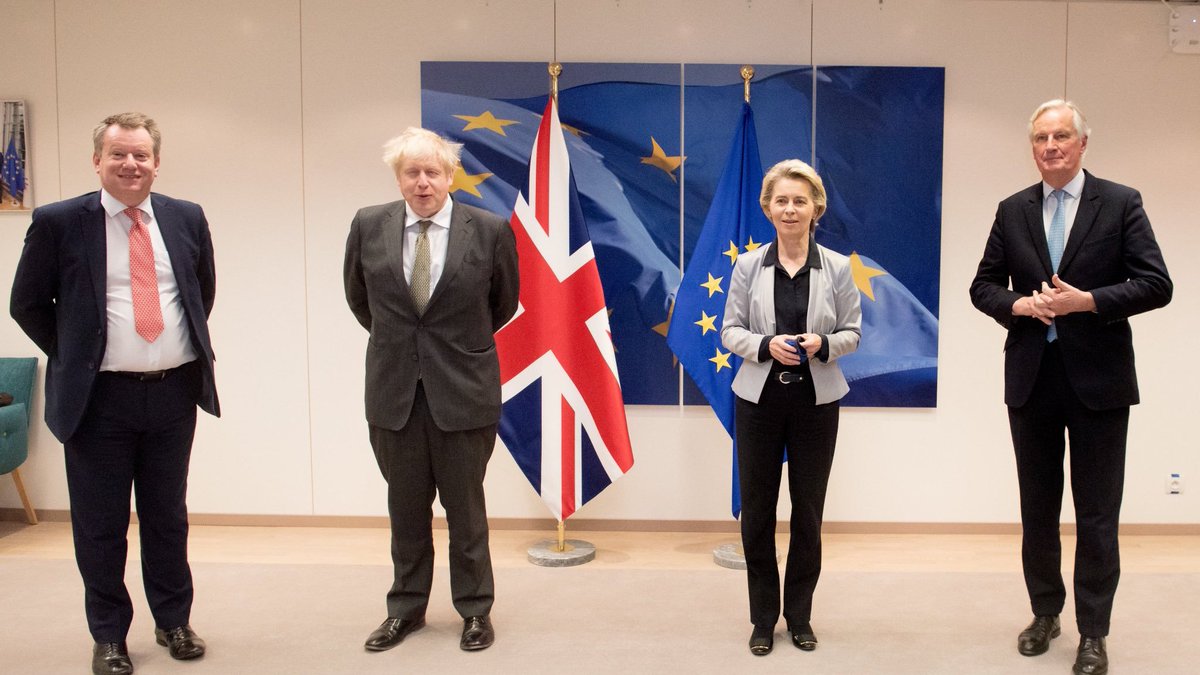
It's dawn(ish) on the last day of this phase of Brexit, so let's consider what we've learnt
1/
1/
Firstly, let's be clear that Brexit isn't 'done', despite yesterday's signing of the Trade & Cooperation Agt and the passing into law of the European Union (Future Relationship) Act
consilium.europa.eu/en/press/press…
bills.parliament.uk/bills/2817
2/
consilium.europa.eu/en/press/press…
bills.parliament.uk/bills/2817
2/
Brexit is a process, not an event
The TCA is a first cut of a new relationship between the two sides, but it is not the last word on the matter
3/
The TCA is a first cut of a new relationship between the two sides, but it is not the last word on the matter
3/
Yes, we do see the end of the high level of institutionalised interaction between the two sides, but how much of an effect the rebasing will have is still to be decided
4/
4/
This matters because of the second key factor, namely the extent of interdependence and entanglement between the two sides
5/
5/
From food supply to economic organisation, from workers filling gaps in each other's labour forces to cooperation on security, from lives entwined, the UK is a part of Europe, whatever the politics
6/
6/
Yes, the period since 2015 has been about the problems and difficulties of making that interdependence work, but it has not changed that the interdependence exists in the first place
And will continue to do so
7/
And will continue to do so
7/
Which takes us to the third observation
The UK has stuck to its long-term position of treating this as a problem, not an opportunity
8/
The UK has stuck to its long-term position of treating this as a problem, not an opportunity
8/
Put differently, there has not been any clear strategy behind British European policy since WWII: instead the approach has been to deal with localised situations, fire-fighting rather than planning for the future
9/
9/
The entirety of Brexit, from Cameron's 2013 Bloomberg speech onwards, has been about making things up as we go along, with minimal thought to the consequences of what comes next
"Stop banging on about Europe" is the leitmotif here
10/
"Stop banging on about Europe" is the leitmotif here
10/
Which is, perhaps ironically, I cannot be too downbeat about today
2300GMT marks the start of something new, but it is something that has yet to be fixed
11/
2300GMT marks the start of something new, but it is something that has yet to be fixed
11/
It falls on all of us to build a new relationship that works, on all sides of the debate, looking for durable and equitable solutions, rather than reinforcing our divisions
12/
12/
That's not going to be easy, but hopefully it'll not be as difficult as in recent years, as some of the bile and rancour drains away from the subject
13/
13/
So I travel hopefully into the new year, because as much as it's an ending, it's also a beginning; one that we can all still make our mark on
/the end (but not the end)
/the end (but not the end)
• • •
Missing some Tweet in this thread? You can try to
force a refresh









